Each client’s recovery journey is unique. Some clients may benefit from traditional evidence-based treatments like cognitive behavioral therapy, while other clients may benefit from a mix of treatment options. Sound therapy is an innovative complementary therapy option that can help supplement a client’s recovery journey. In this article, you’ll learn more about sound therapy for addiction, and how sound can help you find healing in your own recovery journey.
At 90210 Recovery, we are a luxury drug rehab that helps clients safely overcome addiction so they can lead healthier, happier lives. Gone are the days of suffering in silence with your addiction. Our compassionate team of addiction specialists are here to help guide you along your recovery journey. We understand each client is different, and that’s why we offer comprehensive addiction treatment options. Contact us today to learn more about how we can support your recovery.
What is Sound Therapy?
Before diving into how sound therapy for addiction can help support your addiction recovery, it’s essential to understand what sound therapy is. Sound therapy uses different sound frequencies, music, or vibrations to provide physical and mental health benefits. For example, sound therapy has been found to help some clients achieve better quality sleep or reduce stress. Ultimately, sound therapy’s aim is to help clients heal and relax by using the power of sound to supplement one’s road to recovery. Some examples of sound therapy may include music therapy, listening to nature sounds, following a guided meditation, and more.
4 Ways Sound Can Help You Find Healing in Addiction Recovery
Sound therapy offers a complementary approach to support an individual’s addiction recovery journey. Below are the many benefits that sound therapy offers.
Reduces Stress
First, sound therapy helps promote relaxation and minimizes stress so clients can focus on their recovery journey. The road to recovery can be stressful as you are navigating changes in how to maintain your sobriety. Sound therapy offers clients a simple yet effective way to manage and relieve their stress in a healthy manner.
Encourages Mindfulness
Next, sound therapy also encourages mindfulness by helping clients be more aware of themselves, their surroundings, and the present moment. Listening to certain types of music, whether it be natural sounds or calming music, can be very grounding and provide clients with the space and time to reflect on their recovery journey and where they are headed.
Helps Improve Sleep Quality
Similar to sound therapy promoting relaxation and minimizing stress levels, sound therapy also has the potential to improve your sleep quality. Getting quality sleep each night is essential to support your body’s ability to heal and focus on your recovery journey.
Offers Ability to Express, Feel, and Release Emotions
Last but not least, sound therapy can give clients the opportunity to express, feel, and release certain emotions that may be hindering their recovery journey progress. The road to recovery can be difficult. Some clients may have repressed negative emotions from their past that they may need to deal with so they can move forward in their recovery journey. Sound therapy can give clients the chance to address these feelings, whether it be through listening to certain sounds or even playing an instrument themselves.
Help Is Available
Now you know more about sound therapy for addiction, and how sound therapy can be used to supplement a client’s road to recovery. Each client’s recovery journey is uniquely different. Sound therapy gives another complementary treatment option to help clients heal, relax, and feel more aware of the present moment so they can transform their health and quality of life for the better.
90210 Recovery is committed to helping clients safely and effectively achieve long-lasting sobriety. We understand that no two recovery journeys are ever the same. We help treat a range of substance use disorders and also offer dual diagnosis treatment for individuals struggling with drug addiction and mental illness. Ready to start your road to recovery? Contact us today!


